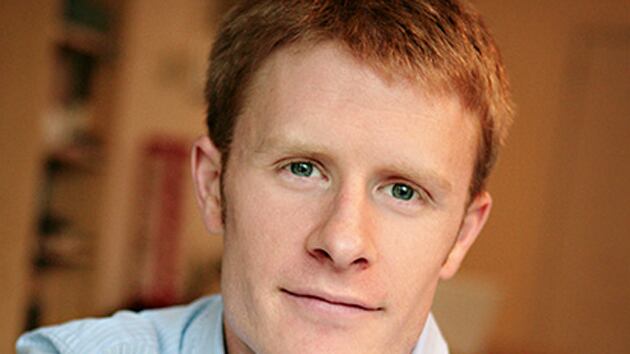In the world of political nerds, there’s a site that everyone goes to. Throughout the turbulence of the Republican primary, political reporters seeking to understand the opaque and confusing rules of the GOP delegate count have turned to Frontloading HQ.

Politico National Politics Editor Charlie Mahtesian calls it “an invaluable resource,” while Salon’s Steve Kornacki deemed it the go-to guide for those needing to “get into the specifics of delegate allocation at the district level.” But the resource every reporter who cares to count delegates turns to isn’t run by a major news organization or a Republican party insider. It’s the blog of Josh Putnam, a 34-year-old visiting professor of political science at Davidson College who has emerged as a star of the cycle.
Putnam says he “started the blog for gathering some nice anecdotal news bits” for his PhD dissertation on why some states were moving their 2008 primary dates up while others stood still. The site was “not terribly exciting, not breaking any news,” he says, since by the time he put it up on Blogspot in March 2007, it was already too late “to really gain a sufficient knowledge of that cycle.” That work, though, meant he was on top of then little noticed rules changes that both parties implemented in 2010 for this year’s presidential race.
As reporters have scrambled to work out the delegate math, and sort through the campaigns’ competing claims about it, Putnam has become essential reading, this year’s rough analogue to Nate Silver, the polling analyst whose remarkably accurate 2008 election night predictions shot him up from sportswriter blogging about polls on the side to a linchpin of the New York Times campaign coverage. In addition to his blog, he’s partnered with Ryan Lizza to count delegates for the New Yorker.
“If you were making a list of the breakout stars of the 2012 cycle,” said Mahtesian, “Putnam is at the top of the list.”
Putman, though, said he is “kind of uncomfortable” with comparisons to Silver, saying “the pressure that I feel isn’t so much to compete with him or with anyone else out there, [but] to fill a void [by] just focusing on the rules [and] explaining how the delegate process works state by state.”
There are no uniform rules in the Republican primary and the result is a confusing mélange that campaigns and the party itself sometimes has difficulty understanding. It’s a topic, said Mahtesian, “most political reporters are not familiar with and are not well versed in.”
By devoting himself to it, Putnam has managed to puncture many of the myths around this year’s race, include that the GOP primary is somehow “more proportional,” and to point out the other factors, like long gaps between bursts of elections, that have led to such a drawn-out process.
The professor, whose phone interview with the Daily Beast was delayed by a meeting with an undergraduate running long, hopes to keep teaching at Davidson, the prestigious liberal arts college less than 40 miles from where he grew up.
Although Putman has been a self-described “elections person” the soft-spoken Gastonia, North Carolina and UNC grad has only one strong partisan streak: about as much love for Duke as Rick Santorum has for Barney Frank.
In the aftermath of Mitt Romney’s sweep on April 3, Putnam is getting reading to transition to the general election and “looking more closely at the Electoral College.” He started doing the same thing four years when the Obama-Clinton primary seemed to hinge on the debate about who would do better in a general election. But past this year’s general, he’s already looking ahead to 2016 when each party could have highly contested primaries; a prospect he finds “both daunting and exciting.”
Looking four years ahead, he hopes that the parties start to work more closely together to develop uniform rules and penalties for future primaries. While each party imposes penalties on states that try to jump the gun and go too early, like Florida and Michigan, the Democrats take a far tougher line than the Republicans.
Putnam fears that this could lead to a state with a Republican legislature, trying to increase its influence in a potential 2016 GOP primary, could be stripped of all its delegates in the Democratic contest as a result—seriously tampering with the rules of the game. While Democrats have fully adopted to the new era of presidential primary campaigns, he says, “the Republicans changed their rules but not their penalties.”
Regardless of what changes are made before 2016, Putnam warns “no matter what you do, you always end up with unintended consequences.” But reporters shouldn’t worry about how to interpret those adjustments. Putnam will still be around to explain how they change the political calculus.






